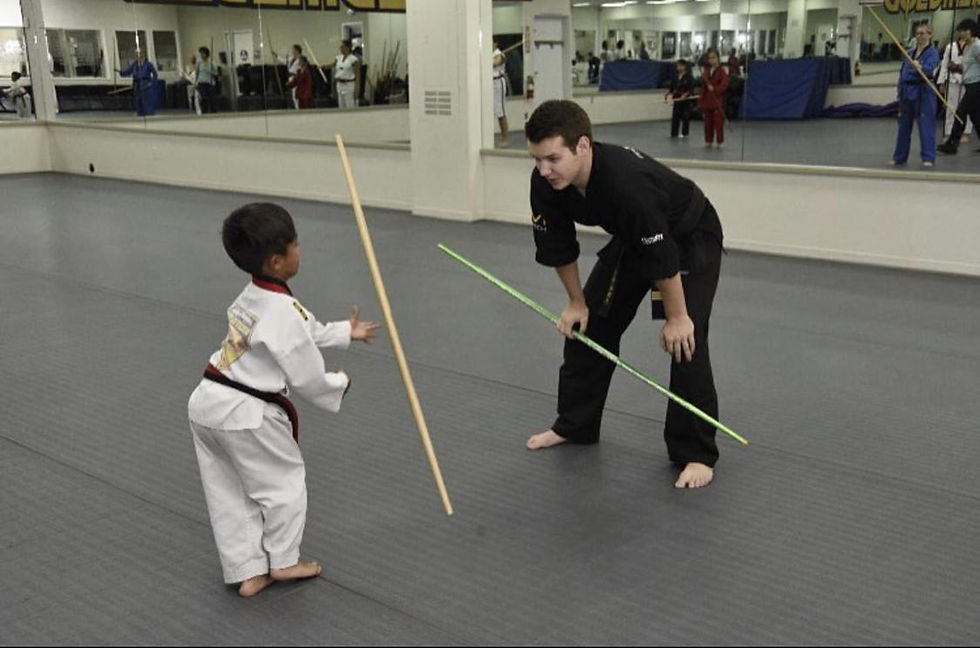5 Keys to Sport Karate Success: Part Two - Seek Mentorship
- Jackson Rudolph
- Sep 26, 2022
- 3 min read
Updated: Nov 8, 2023

This is the second article of a five-part series in which I will be sharing my opinion on the five most important steps one must take on their journey to become a successful sport karate competitor. If you haven’t read part one about showing up to events consistently and welcoming the challenge of competing against top talent, you can find it here.
Mentorship is a crucial part of one’s journey in sport karate. The most apparent manifestation of this is coaching, so I will begin there. There are two different approaches that families typically choose when it comes to coaching, I’ll refer to them as the “head coach method” and the “coach by committee method". The head coach method is when a family selects one private coach that the competitor will train with.
Timelines for this training varies based on the selected coach’s availability and the family’s financial situation, but there are a lot of different training schedules that are effective. This single coach is responsible for helping the competitor choreograph forms, clean up basics, upgrade tricks, game-plan for fights, and so on.
The main benefit of this method from a forms and weapons standpoint is that the competitor will never have conflicting ideas to manage. Sometimes when a competitor has multiple coaches, the various coaches may all have the competitor’s best interest in mind but have a different strategic approach that leaves the student confused, not knowing who to listen to.
The risk of cross-coach confusion can be mitigated in the “coach by committee” method, however. My recommendation to decrease risk of this complication if you want to have multiple coaches would be to ensure that the coaches are division-specific.
Coach A only focuses on the competitor’s weapons forms, Coach B is a traditional forms specialist, Coach C is the only one who gives point fighting advice, etc. This method is likely to be much more expensive, but there is clear benefit in getting division-specific training from a subject matter expert for all of your divisions.
I have personally coached students who use me as their one “head coach”, and I have been part of “coaching committees”, and I know that both methods can be effective when done properly. It is also important to note that this private coaching is INDEPENDENT of being on a team. You can reach out to any competitor or coach on the NASKA circuit and ask them for private lessons, and 99% of the time they will be more than happy to work with you.
I’ll also add that competitors should seek mentorship outside of coaching. I have had numerous judges, promoters, and fellow competitors over the years that I consider mentors who never worked with me in a coaching capacity. There is nothing wrong with respectfully asking a judge after the division what they thought you could have done better.
This could also build rapport with that judge such that every time they judge you, they are willing to let you know where you are improving and where you still need more work. The same is true of promoters, who you will often meet for the first time because they are sitting in a judge’s chair. More experienced competitors are also a great source of mentorship.
Most seasoned competitors are more than happy to tell you what they thought of your form if you ask them, or if you are a fighter they will share what they saw in your matches. Never be shy about asking your fellow competitors for advice. Every true competitor wants to compete against and beat the best, so it is in their best interest to help you get better. You never know, maybe one conversation with a competitor as you seek some basic advice will lead to a lifelong friendship. The camaraderie and brother/sisterhood found in sport karate is unique, it is one of the best things about this sport.